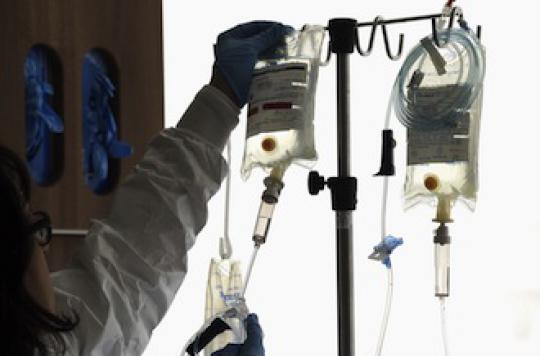According to the OECD, nearly a million people could be saved in developed countries each year with earlier treatment.

In Europe, 2.4 million people die of cancer each year, a quarter of all deaths. In order to combat this scourge, the Organization for Cooperation and Development (OECD) has prepared a report in cooperation with the European Commission which gives precise directives. According to this document “Cancer Care: assuring quality to improve survival”, early detection and effective treatment of cancer could reduce the related death rate by about a third. to disease. Almost a million people could be saved each year in developed countries.
While the death rate has declined slightly over the past 20 years in most OECD countries – with the exception of Greece, Portugal and Estonia – the study’s authors point out that“In terms of potentially lost lives, [le cancer demeure] a much bigger problem than heart disease and stroke in both men and women ”.
The report also shows that the chances of survival after cancer diagnosis vary considerably from country to country: “Survival is generally higher in the United States than in Europe; it is also so in Eastern European countries compared to Western ones. “
Quick access to quality care
These scientists make several recommendations. Rapid access to quality care and minimal waiting times for consultation with specialists appear to be decisive. “Early diagnosis and treatment are essential”, they insist. ” Countries must take appropriate measures to make better use of personnel and equipment resources, in order to diagnose and treat cancer effectively and equitably ”, they add.
The report also develops avenues for reflection on the best public policy to adopt. For example, “governance must be based on an effective national cancer control plan. This type of plan helps to focus the attention of public authorities and public opinion on the performance of cancer care systems and their results, to attract additional resources and to orient the debate towards difficult subjects such as ‘allocation of resources. “. The authors conclude by explaining that countries must “ Track and compare performance with better data ” in order to optimize the quality of care.
.















